
“Superficially, the world has become small and known. Poor little globe of earth, the tourists trot round you as easily as they trot round the Bois or round Central Park. There is no mystery left, we’ve been there, we’ve seen it, we know all about it. We’ve done the globe and the globe is done. …
As a matter of fact, our great-grandfathers, who never went anywhere, in actuality had more experience of the world than we have, who have seen everything.”
—D. H. Lawrence (1928)
The forest conquered. It’s more like a museum than a wilderness. Everything is categorized by scientific classification, well managed by reams of regulations and neatly contained within precise boundary lines governed by statutory law. Its contents are documented and written about in excruciating detail, down to the last miniscule organism and sedimentary grain that makes up the mountain itself. It’s not all that wild. It’s really just an enormous rural park. All mystery is gone, novelty and excitement past. Even if I’ve never been there, countless others have, and from them I know all about it. It’s done. Or is it?
A bird pierces the quiet of the forest with a sharp staccato call I’ve never heard before and I’m surprised and amused to experience something new in a realm I assume to know. In a world long ago explored, where there is no longer any frontier to roam and discover the unknown, I value such little and seemingly pointless experiences.
 For all I thought I knew of the area, it took but a small bird to expose the myth of mastery and prove empty what D.H. Lawrence called the “know-it-all state of mind.” That is because most of my knowledge came from sources other than first hand direct interaction with nature—schools, museums, scholars and experts, books, magazines, friends and family. By the time I grew up I knew all about California despite not having visited much of any of it. Or I thought I did.
For all I thought I knew of the area, it took but a small bird to expose the myth of mastery and prove empty what D.H. Lawrence called the “know-it-all state of mind.” That is because most of my knowledge came from sources other than first hand direct interaction with nature—schools, museums, scholars and experts, books, magazines, friends and family. By the time I grew up I knew all about California despite not having visited much of any of it. Or I thought I did.
I should not have been surprised at the novelty of a lone bird call. My reaction was a product of having written off the forest as no longer holding any mystery and having little majesty merely because so many others had already exposed its secrets. I knew all about it, because I read about it in a book, watched it on TV and had seen the displays in the Museum of Natural History.
I had co-opted other people’s knowledge for my own, but in expanding my understanding by way of others I received a depthless, superficial two-dimensional portrait. Much was missing. My surprise stemmed from believing that there really was nothing new under the sun, because in fact somebody somewhere at sometime had indeed seen everything everywhere. And all of that information was available to anybody at the local library or online. It had all been written about and discussed ad infinitum. By way of the Internet it is possible to sit in your underwear sequestered at home and experience the world. Or so it seems.
“No amount of word-making will ever make a single soul to know these mountains. As well seek to warm the naked and frostbitten by lectures on caloric and pictures of flame. One day’s exposure to mountains is better than cartloads of books.”
—John Muir (1870s)
“Any natural place contains an infinite reservoir of information, and therefore the potential for inexhaustible new discoveries.”
—Richard Louv Last Child in the Woods (2006)
What I had known was acquired from afar rather than from within, and secondhand book knowledge is a poor substitute for primary sensory experience. What is experienced for the first time personally, firsthand really is something new under the sun. The frontier begins where one’s own personal experience ends. Even in the forest conquered.






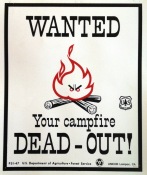

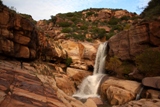
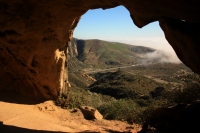

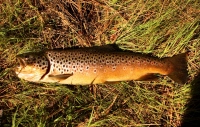
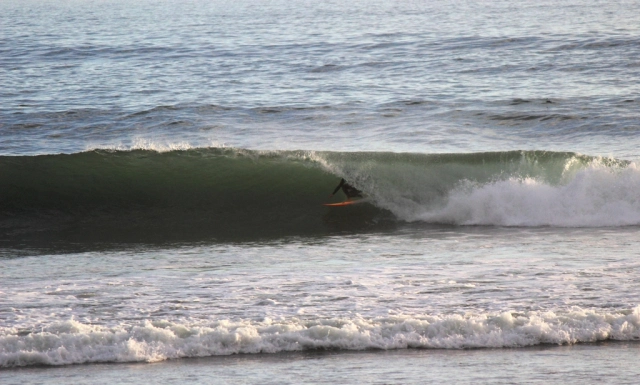

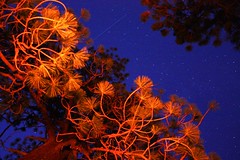








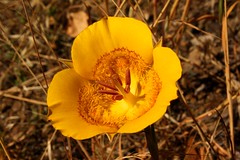









You have captured such a profound concept here. Thanks for the reflection.
Insightful and well crafted, Jack. On a personal note, I rather assume those are the Chorro Grande pines shown; they are cause for reflection every time I pass that stretch of the forest.
Hey Craig. That’s not the sentinels, but it is just off the trail and a tick east of Chorro Camp. The upward looking shot of the pine is of the big one just beside the camp itself.